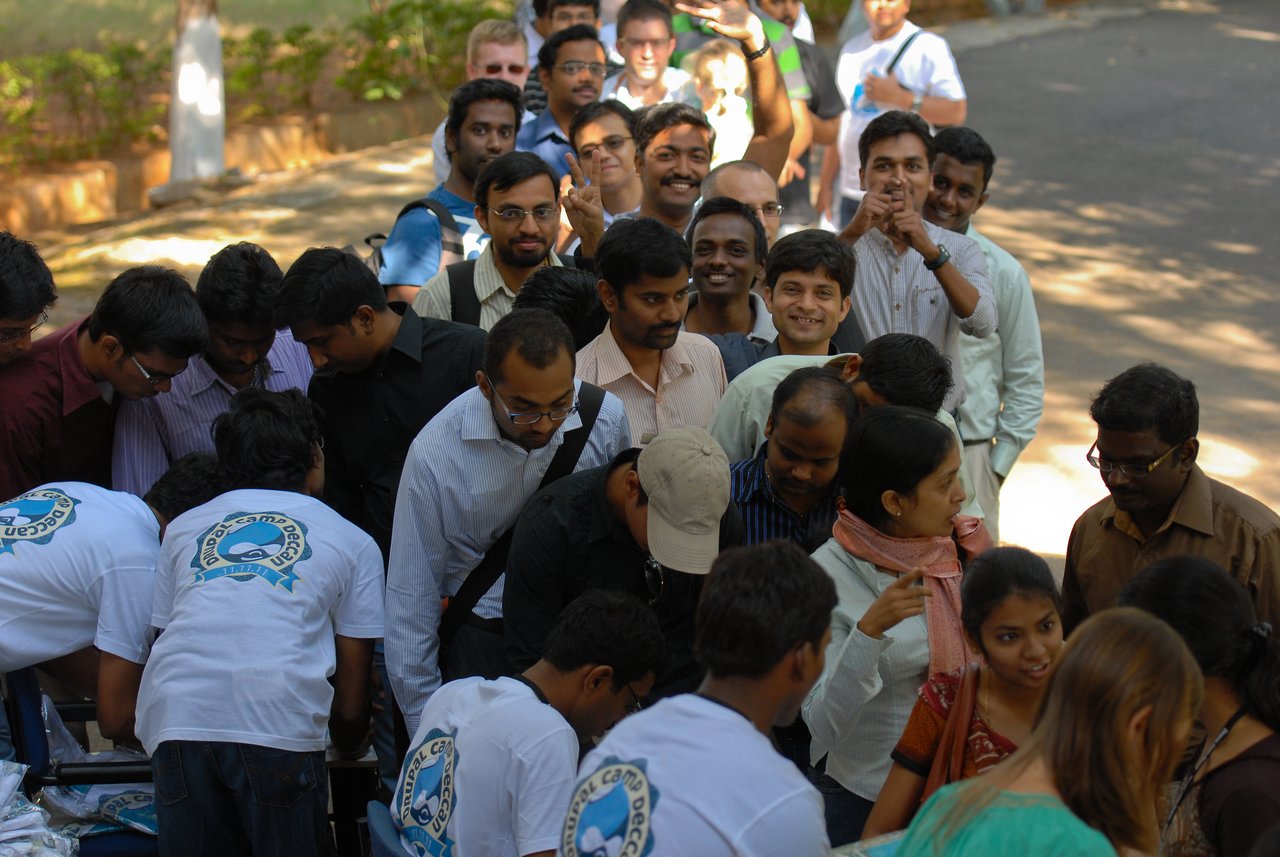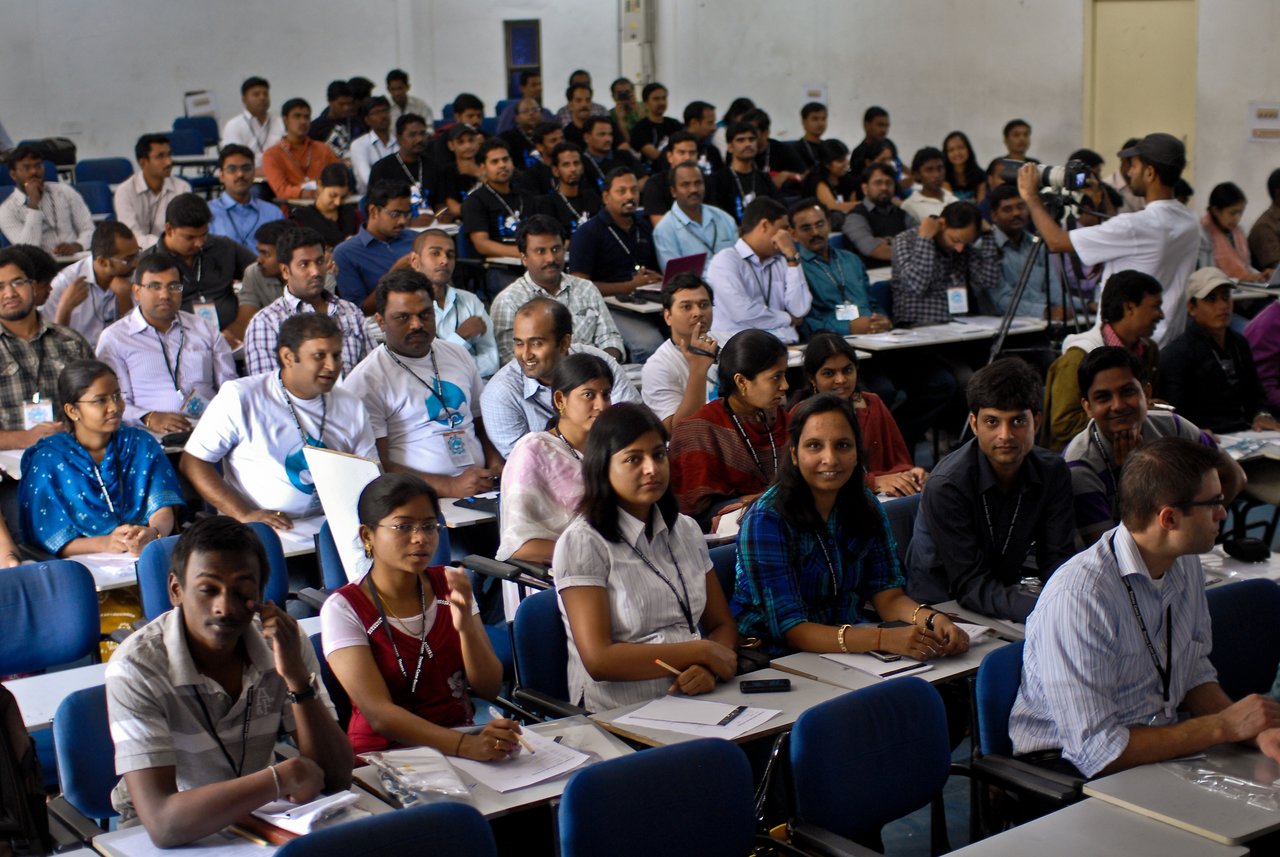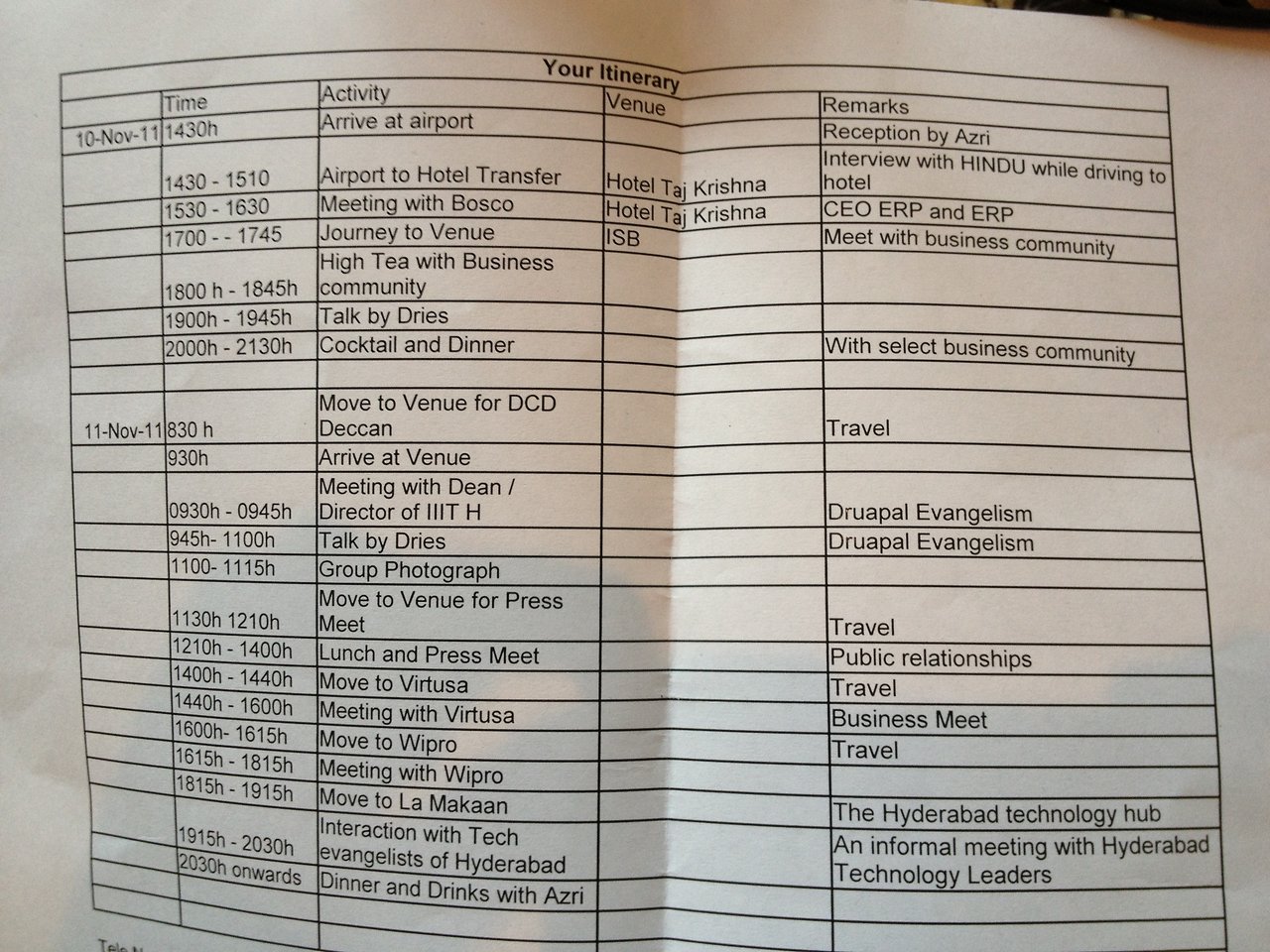Drupal + India = opportunity
Given that there live one billion people in India, many of which great engineers, one can only imagine what would happen if Drupal gained serious traction there. To that extend, I decided to make a trip to India, and spent last week there with Jacob Singh and Ron Pruett from Acquia. The purpose of the trip was to increase awareness of Drupal in India in 3 ways:
- by organizing DrupalCamps to help create a grassroots community of volunteer developers, freelancers and small to medium-sized Drupal shops (bottom-up strategy),
- by talking to the large system integrators that will employ hundreds of Drupal developers (top-down strategy),
- by doing traditional PR with the media and press.
Together with Acquia's partners, we organized 3 DrupalCamps: nearly 300 people showed up in Delhi, 200 people showed up in Mumbai and 350 people showed up in Hyderabad. In addition, I gave a fourth keynote at ISB, India's premier business school, where about 150 people attended. At each of these events, more people showed up than originally expected. More importantly, this implies that there must be thousands of Drupal developers in India alone, especially since we didn't visit many other big cities like Bangalore, Pune, Chennai, etc.

Furthermore, we met various large system integrators in India: Accenture, Capgemini, Wipro, Virtusa, Cognizant, and more. Each of these are multi-billion IT sevices companies that employ thousands of engineers in India. Most of them have 1,000+ employees in their content management practices alone. Many are using Vignette, Liferay, Adobe CQ5, OpenText and Alfresco. Joomla! and WordPress seemed non-existent with the large system integrators, but all of them were eagerly starting to build a Drupal practice. The size of their Drupal teams ranged from 30 to 120 Drupal people, with all of them trying to hire 5 to 15 new people a month. All of them were rather bullish about Drupal and were hearing about it directly from their clients across the globe.
In general, I'd say that the Drupal community is about 3 or 4 years behind with the Drupal community in North America and Europe. However, they are catching up fast and it won't take long before many of the world's biggest Drupal projects are delivered from India.
Our ears perked when we learned time after time that well-known Drupal sites that we assumed were developed in the US or Europe were primarily delivered from India. And it didn't stop there; we learned that the Indian teams are also instrumental in the sales and pre-sales process. They are often responsible for making the CMS platform decisions for all of their clients regardless of country or industry. In other words, a lot of decisions are made in India and it is of strategic importance that the large system integrators have a good understanding of Drupal. They recognize this is important to their success, and all want to invest in training to build more capacity and to increase the expertise of their existing teams.

Interestingly, the Indian culture is big on software training and professional certification, more so than anywhere else in the world. All Drupal companies – small or large – asked about training and professional certification.
Another highlight is that at DrupalCamp New Delhi, about 15 Drupal companies from Delhi met for the first time. Later the same day, we helped organize the first CXO event for Drupal executives. In many ways, these were formative meetings that reminded me of early DrupalCon meetings. For the first time, they got to know each other, explored how to work together, started sharing best practices and toyed with the idea of specialization. I've seen this movie before, and I know what happens when a community of passionate developers start working together. Exciting times are ahead.
Last but not least, I gave about 15 press interviews, many of which resulted in an article in an Indian newspaper or IT magazine.

After 5 days of intensive travel and back to back meetings in three cities, I left India feeling excited about the size of the opportunity for Drupal. It is impossible to grasp the magnitude of the technology community and the influence India is gaining ... without having been to India. There are a lot of reasons to pay close attention about how the local Drupal community will evolve. I like to believe my trip helped accelerate Drupal's growth in India.
This trip wouldn't be possible without the help of Acquia's partners. Special thanks to Azri Solutions, Blisstering and Srijan who helped make the journey more than successful.

—